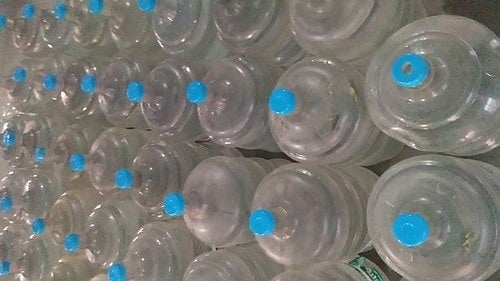GBS In Pune: ‘RO’ Filtered Water In Cans & Bottles Contaminated; PMC Finds E. Coli In 14 Samples, 19 Out Of 30 Plants Near Sinhagad Road Supplying Unsafe Water |
As the tally of the Guillain-Barre Syndrome (GBS) cases refuses to settle down in Pune, with five reported deaths in district, the water in the city used by residnets is under scannner. Now, just days after the contamination was found in the water of the newly merged viilages, tankers supplying water to the city, now the Pune Municipal Corporation has informed that the contamination and bacterias were found in the water of the reverse osmosis (RO) plants supplying drinking water in cans, jars and bottles.
As per the information shared by Nandkumar Jagtap, head of the PMC’s water supply department, “19 of 30 private RO water plants in the affected area supplying cans of contaminated water.”
E coli in water
“Out of 30 private RO plants or water ATMs, 19 were discovered to have coliform bacteria, and 14 of them also have E. coli. The water is unsafe to drink due to contamination,” he added.
Large capacity water cans are sold by private RO plants to individuals and businesses, such as offices, public gathering places, and marriage halls. The PMC administration discovered bacterial contamination in samples taken from each of the 15 private water tanker service providers doing 800 daily trips in the GBS-affected area last week.
On January 28, PMC evaluated 30 samples that were gathered from RO plants, water ATMs, and vendors selling drinking water jars and water in the Dhayari, Sinhagad Road, Kirkatwadi, Khadakwasla, and surrounding Nanded City regions. Bacterial contamination was found to be significantly higher than acceptable levels.
How Much MPN count is needed?
The Most Probable Number (MPN) of bacteria in several samples was actually 16+. The amount of bacteria, such as E. coli and coliforms, in a water sample can be estimated using the MPN method. It provides an estimate of the number of bacteria in 100 milliliters of water.
Zero MPN is the optimal count for drinking water, indicating the absence of any dangerous microorganisms. A high count, such as the 16+ MPN detected in the samples, indicates that the water is tainted and unfit for human consumption. Eleven of the 19 samples from the RO plants had a coliform bacterial level of 16 or higher. Of these samples, 14 contained E. coli.
163 cases in state
Day after crossing the 150-mark, the GBS cases in Pune district have now risen to 163 with five reported fatalities due to the immunological nerve disorder.
Of the total cases, 32 patients are from Pune Municipal Corporation area, 86 from newly added villages in PMC area, 18 from Pimpri Chinchwad Municipal Corporation area, 19 from Pune Rural and 8 are from other districts.
Out of these, 21 people are on ventilator and 47 in ICU.
